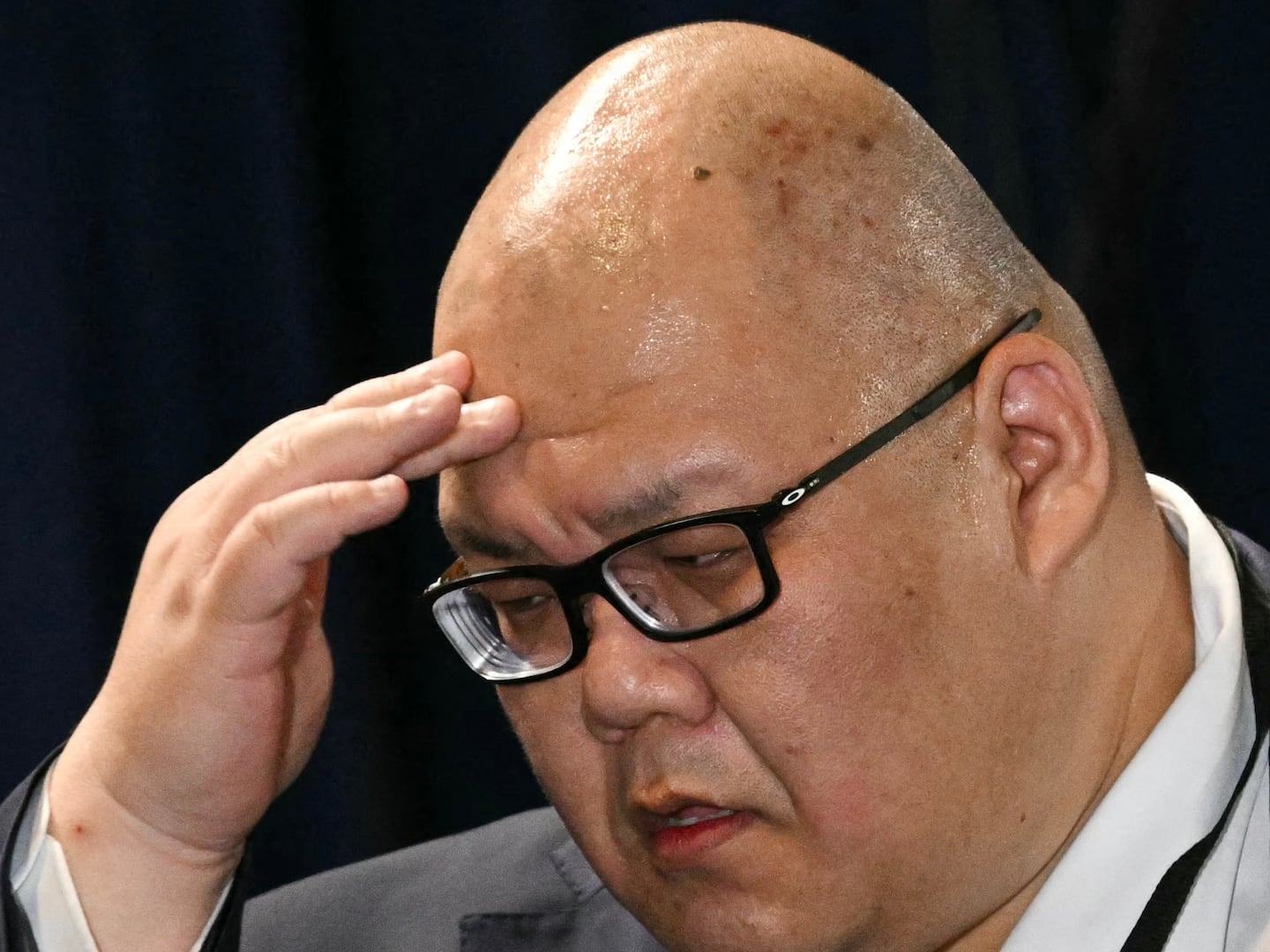Is Lena Dunham too privileged to fail? Ever since her meteoric rise to fame with the premiere of HBO’s Girls in 2012, Dunham’s name has become synonymous with the scandals that regularly swirl around her without ever sinking her altogether.
Currently, the Girls star is facing allegations from conservative outlet Truth Revolt that she sexually abused her sister Grace when they were both children. These allegations are based off of excerpts from her memoir Not That Kind of Girl in which she recalls bribing Grace with candy to kiss her on the lips, opening her vagina with her fingers, and masturbating beside her in bed.
Over the weekend, Dunham took to Twitter to try to correct public perception of the story, calling the idea that she molested her sister “fucking upsetting and disgusting.” She also attempted to pass off her experience with Grace as a more or less universal childhood experience; to her, the story about opening her sister’s vagina is “a story about being a weird 7 year old,” not a cause for concern. For her part, Grace has also issued a series of tweets that question the media’s portrayal of her sister’s behavior.
While Dunham is writing off the story off on Twitter, she has also decided to withdraw from two European book tour events—a sign, perhaps, that the chinks in her armor are beginning to show. But if there’s one thing we should have learned about Dunham by now, it’s that her reputation is upheld by a group of ardent supporters—predominantly white feminists—who will never fully disavow her, no matter how grave her perceived misdeeds.
On Twitter, people of color in activist communities, who have long critiqued Dunham for her problematic statements on race, are even beginning to refer to her as “Teflon” because nothing ever seems to stick to her:
Indeed, at this point, we would need a detailed timeline to keep track of all of the controversies around issues of race and class that Dunham has weathered over the last two years.
In 2012, she labeled the whitewashed version of New York City presented in Girls—in which people of color were initially only cast as nannies and bellhops—as a “complete accident,” in reaction to a wave of criticism from people of color who did not see themselves represented on the critically-lauded show. Later that same year, she Instagrammed a photo of herself wearing a faux hijab before half-apologizing for it on Twitter.
Dunham kicked off 2013 by reportedly telling Rolling Stone that she held more sympathy for India’s “stray dogs” than she did for the “poverty-stricken people.” That same year, she joked that she was “thin for Detroit,” a comment with racist undertones that did not go unnoticed by residents of the Motor City. And earlier this fall, Dunham announced she would be touring for Not That Kind of Girl with a band of “special weirdos who [she] found on the Internet” who would provide warm-up acts without receiving compensation, despite the fact that she made $6 million in 2013. After a stern media backlash, Dunham decided to pay her opening acts and, predictably, all was forgiven.
Even though Dunham sticks her foot in her mouth with alarming frequency, a certain subset of white feminists have remained fiercely loyal to her, erasing her misbehavior as soon as it happens. In 2012, HuffPost Women preemptively declared that they would not “participate in the Lena Dunham backlash,” even praising her “thoughtful” response to criticisms of the overwhelming whiteness of Girls.
And as Dunham’s indiscretions have become more difficult to ignore, it’s become de rigueur for white feminists to acknowledge that she is a polarizing figure while still supporting her on the whole. Feministing, for example, labeled her 2013 Golden Globes win a “top feminist moment,” in a paragraph riddled with more disclaimers than a carton of cigarettes. White feminists have become remarkably effective at apologizing for Dunham; she’s certainly given them plenty of opportunities to practice.
Whether or not her experiences with her younger sister qualify as abuse, Dunham’s cavalier attitude toward her childhood anecdotes is troubling, but apparently not troubling enough to prevent the Dunham defense force from rushing to her side. On Salon, Mary Elizabeth Williams argues that Dunham’s stories about Grace are evidence of “boundary issues with her sister’s privacy,” but not much more. Emma Gannon of Debrief calls it a classic example of Dunham “oversharing,” labeling the reaction to her memoir a simple “backlash” against Dunham’s success. And those who have not yet written articles themselves are currently fighting Dunham’s battles for her on Twitter:
Several white feminists are focusing on the fact that the allegations initially stem from National Review correspondent Kevin D. Williamson—a man who claimed that “Laverne Cox is not a woman” and who once said that women who have abortions should be hanged—in order to dismiss the allegations against Dunham as a right-wing smear campaign. It’s true—Williamson is indeed one of the most vile messengers for bad news that feminists have ever faced.
But while there is a deeply misogynistic and disturbingly gleeful animus behind some of the conservative reactions to Dunham’s confessions, other feminists are legitimately frustrated with white feminists who seem to stand by Dunham at all costs. In a widely-shared blog post, for example, pop culture writer Luvvie Ajayi argues that Dunham is only able to weather these latest accusations because of the color of her skin:
“A Black woman could not have written what Lena did. She would not have the space to argue context. She would not have anyone championing her. She would certainly not be given some benefit of the doubt about childhood exploration because Black people’s innocence is often denied, even when we’re 7.”
And activist Deva Cats-Baril started the Twitter hashtag #DropDunham in order to put pressure on Planned Parenthood to cut ties with Dunham, who currently serves as a celebrity spokesperson for the reproductive health organization. Popular tweets on the hashtag reveal a wide range of feminists who are dissatisfied with Dunham’s current status as a de facto figurehead for their movement:
In an interview, Cats-Baril expressed her frustration with the way in which Dunham is currently being defended by many white feminists despite her history on issues of race and class.
“Mainstream feminism is riddled with classism, racism, and sexual orientation discrimination,” she wrote. “Feminists in positions of power in ‘the movement’ aren’t ready to confront their own racism and white privilege, so it’s uncomfortable for them to discuss Dunham’s.”
The allegations of sexual abuse against Dunham seem to have stretched white feminism’s attachment to Dunham to its limits, but not beyond them. As activists, particularly women of color, question Dunham’s institutional ties to the feminist movement, the well-worn racial fault lines that have long characterized U.S. feminism are coming to the fore once again. While white feminists continue to defend Dunham, seemingly out of reflex at this point, non-white feminists are tired of Dunham getting a free pass for behavior that people of color would be excoriated over.
Whether or not Planned Parenthood decides to “drop” Dunham remains to be seen, but one thing’s for sure: if Dunham emerges on the other side of this particular controversy with her status as a feminist icon intact, she must be made of Teflon. She may have spent the last two years figuring out new ways to become her own worst enemy, but as long as Lena Dunham can keep white feminists in her corner, she can do no wrong.






